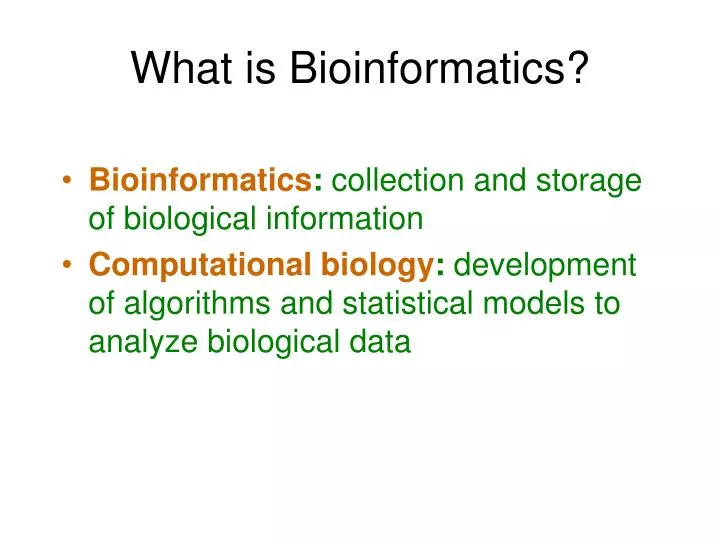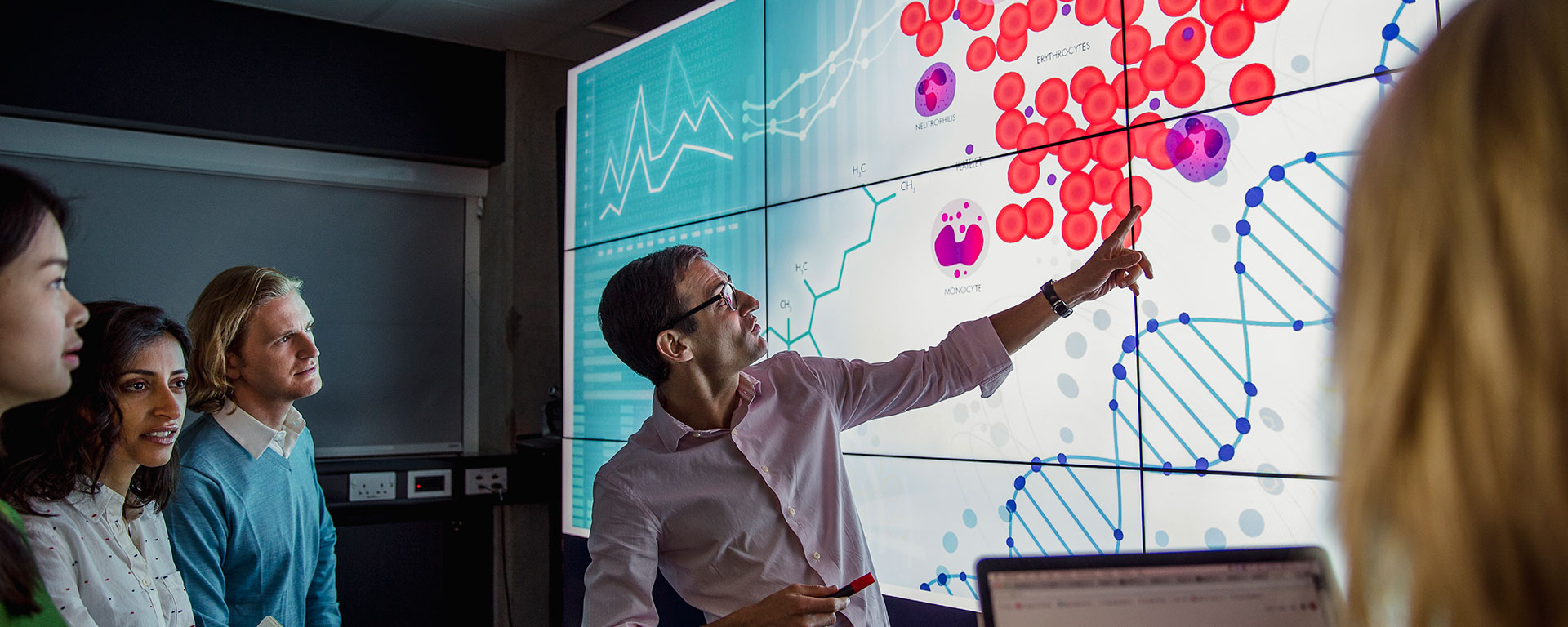How Bioinformatics Tutor can Save You Time, Stress, and Money.
How Bioinformatics Tutor can Save You Time, Stress, and Money.
Blog Article
Rumored Buzz on Bioinformatics Tutor
Table of Contents10 Easy Facts About Bioinformatics Tutor ExplainedThe 5-Second Trick For Bioinformatics TutorThe Only Guide for Bioinformatics TutorBioinformatics Tutor for BeginnersThe Main Principles Of Bioinformatics Tutor
Of the overall participants involved in the training, 80% were students from public college organizations, while the continuing to be 20% originated from exclusive organizations. To receive a certificate of engagement, trainees were required to go to at least 90% of the complete training hours. As a result of this requirement, an impressive 95% of the individuals effectively obtained their certifications, having not only met the minimum presence requirements but additionally completed all designated tasks throughout the training.
Throughout the height of the COVID-19 pandemic, specifically between June and August 2020, the job group was tasked with organizing specialized training in bioinformatics. This training was especially targeted at trainees from the research study group Nucleus for Research study in Applied Computer at the Federal University of Pará (UFRA) The adjustment to remote learning systems due to the pandemic developed a chance to discover brand-new mentor methods and electronic devices that enhanced both reach and effectiveness.
To respond to the expanding demand in the computer and life scientific researches fields, an innovative course was presented in 2020 titled Introduction to Artificial intelligence. This course was developed to offer an obtainable yet extensive review of Artificial Knowledge techniques, especially as used in bioinformatics. The program was accomplished over 3 months, from October to December 2020, and was provided entirely online through the Google Meet platform. This online format allowed involvement from trainees across Brazil, much of whom could not have had the opportunity to participate in in-person sessions.
The 4-Minute Rule for Bioinformatics Tutor
Roughly 50% of the complete training hours were devoted to useful tasks where pupils developed intelligent models and applications in a variety of scientific domains, including genetics, molecular biology, and environmental information analysis. These systems made it possible for pupils to involve in real-time data control, version training, and formula trial and error.
The program drew in 80 individuals in total amount. Sixty of them were affiliated with numerous college institutions in the state of Pará, while the continuing to be twenty originated from organizations found in 5 various other Brazilian states. This wide geographical representation highlighted the nationwide rate of interest in bioinformatics and the growing need for specialized abilities in this field. By presenting Expert system in a sensible and appropriate context, the effort offered to link the gap in between concept and real-world application, supplying trainees with a strong structure for future research study or employment in the field.
The training initiative created component of a wider scholastic outreach initiative referred to as the Bioinformatics on the Road project. This job has, throughout the years, introduced loads of pupils to the world of bioinformatics and computational biology. The occasions held under this umbrella effort have actually taken location throughout several areas and years, as summed up in Table 1 (List of events, places, years, and complete varieties of trainees and teachers)
Numerous of these groups, at first brought together by their involvement in training occasions, have given that gone on to produce independent scientific study in partnership with regional academic organizations. The training not only cultivated clinical reasoning within the context of bioinformatics however additionally triggered collective partnerships that expanded beyond the training setting.
10 Simple Techniques For Bioinformatics Tutor
The task itself was conceived and organized by MB and RR, who looked after the planning and implementation of each action. Lectures were supplied by a multidisciplinary group containing megabytes, FA, EF, KP, JS, DM, SN, LP, LG, RR, ih, and air conditioning. The exact same team, excluding IH and RR, additionally functioned as tutors for the functional training components. Funding for the task was provided with the grant 88887.200562/ 2018-00 from CAPES. The authors extend their thankfulness to every person that contributed to the awareness of this project, whether straight or indirectly, given that its inception.
The Federal College of Pará's Office of Research (PROPESP/UFPA) also offered financial backing, specifically for the production of the final manuscript. The writers state no economic or commercial conflicts of passion that can have influenced the research study. Additionally, all viewpoints and analyses shared in this short article are solely those of the writers and do not always show those of their corresponding organizations, the publisher, editors, or customers included in the publication procedure.

Get This Report about Bioinformatics Tutor
From an instructional point of view, the mentor method used in the training was deliberately interactive. Classes were performed in a manner that urged pupil engagement and conversation, going past rote memorization to discover exactly how ideas are developed, used in daily life, and examined in scholastic setups. The training approach concentrated on supporting both solid and having a hard time trainees, providing personalized assistance, and building confidence via sustained mentorship and patience.

Each group, being composed of roughly 36 participants, was supported by three mentors-- a lot of whom were postdoctoral scientists with customized know-how. These mentors not just aided create the team jobs yet additionally facilitated their execution, check my site ensuring that each research question was both appropriately difficult and appropriate. The objective was to provide a naturally reasonable context that participants can discover through open-ended goals and accessibility to curated datasets.
For added understandings right into the approach and end results of this project-based discovering technique, viewers are guided to S1 Text, which consists of in-depth descriptions of the pedagogical structure, analysis techniques, and project styles utilized in the training sessions.
The Facts About Bioinformatics Tutor Uncovered
Of the total individuals included in the training, 80% were pupils from public greater education organizations, while the remaining 20% came from personal establishments. To certify for a certification of engagement, pupils were required to attend at the very least 90% of the total training hours. Especially, past the students that enrolled in the training sessions, seven knowledgeable teachers took part in delivering the training courses, while three specialized research teachers worked with the overall training procedure. Roughly 50% of the overall training hours were committed to practical tasks where students constructed smart designs and applications in a variety of clinical domains, including genes, molecular biology, and imp source environmental information analysis. The training not only promoted clinical reasoning within the context of bioinformatics however additionally sparked collective connections that extended beyond the training setting.
Report this page